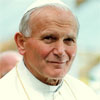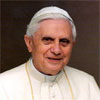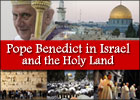In his latest article for InsideCatholic.com, Deal Hudson presents
Ten Hard Facts Confronting Benedict XVI in the Holy Land concerning the plight of Palestinian Christians.
One would expect that -- when presenting a list of "hard facts", particularly a topic as provocative as the Israeli-Palestinian conflict -- elementary journalistic standards would require the citation of a source.
Furthermore, one might expect the placement of such statistics in context to further enable a moral evaluation.
That Hudson completely neglects to do this is frustrating, to say the least.
Consequently, we have such indictments as
"Palestinians have been the subject of frequent attack [by Israel] -- often with civilians and their homes in the direct line of fire"
Such a statement, on its face, leaves out notable mitigating factors. Taking the most recent case of Gaza, for instance, Hudson could have mentioned
Hamas' penchant for deliberately locating its troops and rocket positions in close proximity to civilians, even so far as housing weapons in schools and
within its own mosques.
Other factors which might be brought to bear in the evaluation of Israel's targeting of Palestinians in civilian-populated areas is that Israel sought to warn civilians prior to impending attacks via Arabic-language voice mails on their cell phones, urging them to vacate homes where militants had stashed weapons. (Conversely, Hamas displayed complete disregard for civilian welfare, to the point of hijacking ambulances).
Again, Hudson states that:
"Israel's 21-day incursion into Gaza left an immense humanitarian crisis: More than 50,800 Gazans were left homeless; 80 percent of the population are now dependent on assistance"
But certainly at this point, might our appraisal of this fact be influenced by the knowledge that, even while Israel was fighting to protect their own cities against Hamas' rockets, they were
bringing assistance to citizens of Gaza impacted by the conflict?
The Israeli Ministry of Foreign Affairs, for example, provides regular weekly reports on humanitarian aid to Gaza during the IDF operation and increased humanitarian aid to Gaza following the IDF operation as well.
In a February 2009 post ("Dispatch from the border of Gaza"), Michael Totten wrote about his tour of a temporary field hospital set up by the State of Israel at the Erez Crossing at the northern end of Gaza:
Palestinian civilians who needed medical attention were invited to come to Erez for treatment by Israeli doctors.
Humanitarian goods facilitated by the IDF also went through Erez into Gaza throughout the conflict, and the crossing was open to Palestinians with dual nationality who wanted out.
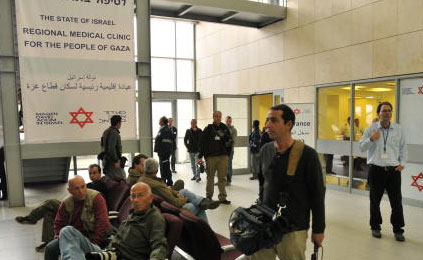
“We were asked by the government and the Ministry of Health to operate this regional medical clinic,” an Israeli doctor told me. “We've put everything here we can provide in a first-line clinic. It's not a hospital. We won't be able to operate here. But we need a humanitarian clinic to treat patients who need medical assistance.” [According to the Jerusalem Post, the clinic "offered not only medical specialists but also x-ray facilities, a lab and a pharmacy, meant to treat about 50 patients at once - both wounded Palestinians and those suffering from physical ailments"].
[...]
The Israelis had to close the place down. Only a handful of patients ever came through, which didn’t surprise me. I didn’t see any Palestinian patients there when I visited. Hamas didn’t allow their wounded to be treated by Jews.
Consider also, for instance, that the blog
Elder of Zion together with PTWatch have documented 86 some terrorists
killed by the IDF that have been reported as "civilians" by the Palestinian Center for Human Rights (the source of statistics cited by Hudson in his prior article).
All the more reason to regard "facts" -- and the mere citation of statistics absent of context -- with caution.
* * *
According to Hudson:
"Tension with Muslims is not the primary reason for the exodus -- only 11 percent of Palestinian Christians cite it as a reason for immigration."
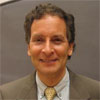
With all due respect, I have reasons to approach this statistic with some skepticism. Most curiously, Hudson himself has previously cited (approvingly!) the work of Justus Reid Weiner, an international human rights lawyer who has made the plight of Palestinian Christians a subject of personal research. You can read an interview with Weiner
here; a monograph,
Human Rights of Christians
in Palestinian Society is available for free download as well.
Weiner speaks of "intimidation, beatings, land theft, firebombing of churches and other Christian institutions, denial of employment, economic boycotts, torture, kidnapping, forced marriage, sexual harassment, and extortion" -- not, however, at the hands of Israel. (See the aformentioned links for documentation).
According to Weiner:
[Over a 10 year period] my research assistants and I have interviewed scores of Christian victims. Many of those interviewed were too terrified to tell their stories. In an effort to reassure them, I promised to conceal their real names, professions, and places of residence.
Suffice to say this doesn't strike me as an opportune environment for a persecuted minority to register open complaints about their condition. In fact, says Weiner, the silence and suppression of Palestinian Christians remain the norm when it comes to such persecution:
Weiner says he became aware of the many crimes against Christian Arabs under the Palestinian regime when, ten years ago, a Christian lay pastor said to him, "You're a human rights lawyer, what are you doing for the Christian Arabs?" Weiner replied that he was not doing anything for them as he was not aware they had any problems. The pastor then said: "Let me send you some people to interview and once you've done that make up your own mind."
Weiner remarks: "That began my education process on this subject. The problem I had the most difficulty understanding was why the large, powerful, populous Christian world has permitted this to go on for so long. This is the more surprising as the PA is in such need of funds and political support. Ten years down the road I can only say that it is a sad testimony for contemporary Christianity.
"I discovered a wide gap between the Palestinian Christian leadership and their flock. The former tended, for many years, to put on their nice robes and hats to meet Arafat for religious occasions. They are the same people who keep touring around the United States and being feted in different locations where they repeat the false story that everything is fine.
"These patriarchs and archbishops of Christian Arab denominations who are currently deceiving the international community are self-interested people. They collaborate with the Muslim perpetrators of intimidation and violence. Against all evidence they claim that the Christians Arabs are living comfortable and prosperous lives. In fact the present situation is growing worse by the day."
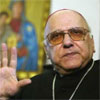 The numerous incidents of Muslim persecution told by Weiner stand in stark contrast to the testimony of, say, Michael Sabbah (former Latin Patriarch of Jerusalem 1987-2008), who in a December 2003 interview dismissed such accounts:
The numerous incidents of Muslim persecution told by Weiner stand in stark contrast to the testimony of, say, Michael Sabbah (former Latin Patriarch of Jerusalem 1987-2008), who in a December 2003 interview dismissed such accounts:
Is it difficult being a Christian Palestinian in a predominantly Muslim and Jewish land?
Christians are part of Palestinian society, and the Palestinians are Christians and Muslims. No one is going to flee because of Islamic influence, but because of the lack of work, or the political tension provoked by the curfew. But there is no Muslim persecution of Christians, and in fact they share the same hope of one day having an independent state.
Don’t you see a desire on the part of Muslims to dominate and convert other faiths?
Just a moment. This isn’t easily understood in the West. We Palestinians know how to live together and how to understand this relationship. We are one people, even if there are some difficulties.
But aren’t you isolating the case of the Palestinians? This isn’t a relationship that is easily exported. To find Christians who are persecuted it’s enough just to look at Vatican reports. Think of Pakistan, Afghanistan, Indonesia, Iraq.
In Arab countries there is no persecution of Christians. I don’t speak of Pakistan, but in Egypt, Syria, Iraq, Lebanon—no. Historically there have been some massacres, beginning when Europe entered the Mideast. ...
Not even any effort at the conversion of Christians?
There’s always that, but much of it is social pressure, that’s all. Nowadays we cannot say there is persecution. There are problems of the majority and minority, disputes of a social nature. These governments are very vigilant about relations between Muslims and Christians. There’s a lot of propaganda in the West; I don’t know why. Let us live in peace and don’t foment fear, it’s fear that weakens us. Our vocation is to live among Muslims and to give testimony to Jesus in a Muslim society. It’s difficult, but we accept it.
Rod Dreher, a journalist and [Orthodox] Christian blogger, conveyed his own first-hand encounter with the self-imposed censorship of Palestinian Christian prelates in 2005:
When I was in the Holy Land covering John Paul's visit, I spent time talking to Palestinian Christians. They have hard lives, no doubt about it, and all blamed Israel. But a funny thing happened when I put my notebook away after one of these interview sessions. The Christians with whom I was speaking suddenly started talking about how terrified they were of the Muslims, and said how life would be far worse for them if the Islamists took power within the PA. They wanted me to know that, but did not want me to quote them. They (correctly) saw things as hopeless all around for Palestinian Christians, and just wanted to move. There are no Christian suicide bombers, but the Christians have to pay the price for what the Muslim suicide bombers do. And so forth.
[...]
At my newspaper a couple of months ago, the Anglican bishop of Jerusalem, a Palestinian, came by for an interview with the editorial board. It was pathetic to watch. He was dhimmi-ized through and through. Couldn't bring himself to condemn anything Muslims did. Everything was the fault of the Israelis. If a Muslim blew himself to bits and killed scores of Israeli civilians in so doing, that was Israel's fault. No, there is no enmity between Muslims and Christians there, he insisted; we have always gotten along wonderfully, couldn't be better, he said.
I couldn't figure out if he was lying to himself, or to us. But when he said that Abraham wasn't Jewish, well, that just took the cake.
Weiner concedes that Israel does bear some responsibility for the situation and cites several issues (which Hudson raised in his article), such as visa restrictions which hamper foreign and local Christian clergy from traveling between parishes, and "economic hardship and unemployment is caused by the cutoff from outside aid due to Israeli security measures that bar most Palestinians from working inside Israel."
Nonetheless, to reiterate my prior post: any moral evaluation of the restrictions on movement imposed by Israel must take into account the reasons why they were established and imposed in the first place.
There is no disputing that life would be easier for Palestinian Christians and their counterparts if Israel were to dismantle the checkpoints and the security fence. But such a removal would, of course, be predicated upon the willingness of organizations like Hamas and Islamic Jihad to disavow terrorism.
And that's something Hudson hasn't actually addressed.
* * *
In closing, perhaps as an incentive to further discussion, permit me to pose some questions:
What do you anticipate would happen, were Israel to suddenly dismantle its security measures -- the checkpoints? the security fences?
How would Palestinians react? -- Fatah? Hamas? Islamic Jihad?
Noting that the Vatican has itself formally recognized the State of Israel, is such a recognition incumbent on Palestianian Christians and their Muslim counterparts?
Related
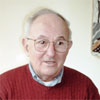 In an interview for a major European periodical next week, Rabbi Jacob Neusner commented on Pope Benedict XVI's upcoming visit to Israel -- Tzvee's Talmudic Blog has the complete details. Here's just a snippet:
In an interview for a major European periodical next week, Rabbi Jacob Neusner commented on Pope Benedict XVI's upcoming visit to Israel -- Tzvee's Talmudic Blog has the complete details. Here's just a snippet:
as "by far the most important book for the Jewish-Christian dialogue in the last decade" -- probably one of the few Jewish books that could boast a blurb by Fr. Andrew Greeley AND the Prefect for the Congregation of the Doctrine of the Faith on its cover! (Jesus of Nazareth, in fact, could be read in part as a response to the arguments made by Professor Neusner in his own book).

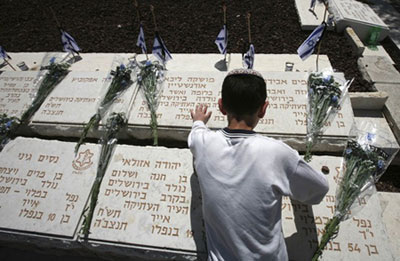
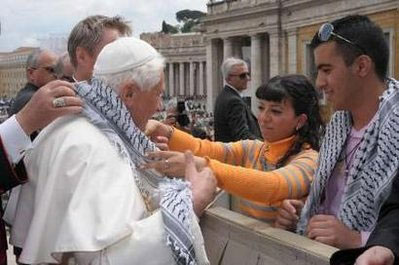
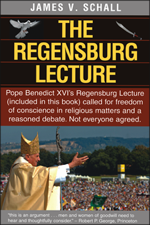
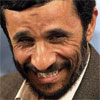 As if on cue, Iranian president Mahmoud Ahmadinejad
As if on cue, Iranian president Mahmoud Ahmadinejad 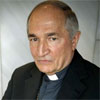
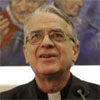 The Vatican spokesman, Jesuit Father Federico Lombardi, told Vatican Radio April 20 that "statements like those of the Iranian president do not go in the right direction, because even if he did not deny the Holocaust or the right of Israel to exist, he expressed extremist and unacceptable positions."
The Vatican spokesman, Jesuit Father Federico Lombardi, told Vatican Radio April 20 that "statements like those of the Iranian president do not go in the right direction, because even if he did not deny the Holocaust or the right of Israel to exist, he expressed extremist and unacceptable positions."

 With all due respect, I have reasons to approach this statistic with some skepticism. Most curiously, Hudson himself has previously cited (approvingly!) the work of Justus Reid Weiner, an international human rights lawyer who has made the plight of Palestinian Christians a subject of personal research. You can read an interview with Weiner
With all due respect, I have reasons to approach this statistic with some skepticism. Most curiously, Hudson himself has previously cited (approvingly!) the work of Justus Reid Weiner, an international human rights lawyer who has made the plight of Palestinian Christians a subject of personal research. You can read an interview with Weiner  The numerous incidents of Muslim persecution told by Weiner
The numerous incidents of Muslim persecution told by Weiner 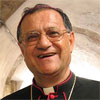 The website of the Franciscan Custody of the Holy Land features an
The website of the Franciscan Custody of the Holy Land features an 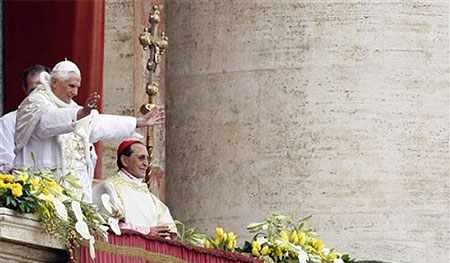

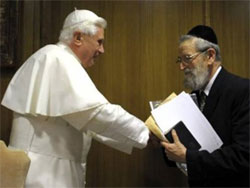 Rabbi Cohen said the Pope went out of his way to make it clear the Vatican would never question Israel’s sovereignty, nor challenge its rights to rule over the Old City of Jerusalem. Between 1949 and 1967, the Old City remained under Jordan’s Islamic rule, and Jews were barred from entering it.
Rabbi Cohen said the Pope went out of his way to make it clear the Vatican would never question Israel’s sovereignty, nor challenge its rights to rule over the Old City of Jerusalem. Between 1949 and 1967, the Old City remained under Jordan’s Islamic rule, and Jews were barred from entering it.

